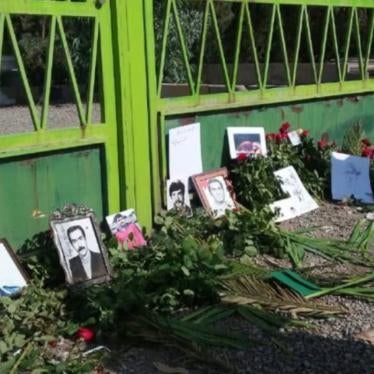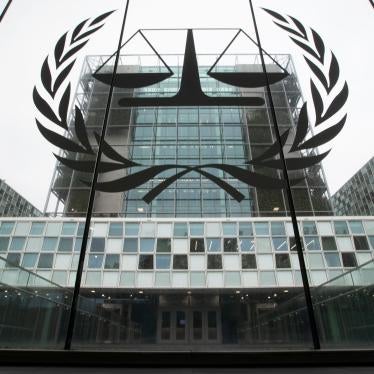Earlier this summer, crowds of Iranians stood outside a Stockholm court anticipating a verdict. Inside, Hamid Noury, a former Iranian official, was convicted of war crimes and murder for his role in the mass execution of political prisoners in Iran in 1988.
For many Iranians abroad, this was a moment of relief, validation, and recognition that never seemed possible. The 1988 massacre is one of several incidents that haunt the diaspora’s collective memory. Iranian-Canadian families like mine feel immense frustration that perpetrators linked to serious crimes could evade accountability even while living outside Iran.
Human Rights Watch recently unveiled a five-point checklist outlining steps governments should take to advance justice and accountability globally. Through the Noury case and other efforts, Swedish judicial authorities have shown leadership on one key point on that list: leveraging universal jurisdiction laws to prosecute grave international crimes domestically.
Recognizing that many pathways for justice are blocked in some states, several European countries are actively pursuing perpetrators of serious crimes on their own soil. Regrettably, Canada lags far behind.
While Canada enacted a Crimes Against Humanity and War Crimes Act in 2000, few steps towards accountability have been taken since. Although judicial authorities have a mandate to investigate and prosecute suspected perpetrators of serious crimes in Canada, lack of adequate funding, staff, and resources have rendered these efforts moot.
To date, only a handful of people have been prosecuted under the War Crimes Act. Instead, Canadian officials have largely focused on deporting accused or barring their entry into Canada in the first place.
Noury is likely only one of many suspects living abroad that have tried to escape accountability for crimes. Canadian authorities received evidence implicating a Liberian national, Bill Horace, in serious international crimes, but he never faced charges before he was killed in the course of a break-in to his home.
Every year, Canada accepts tens of thousands of refugees and asylum seekers from crisis countries, many of whom may have witnessed or been victims of serious crimes.
Ottawa should ensure Canada’s judicial authorities are adequately resourced to actively pursue war crimes investigations when possible. It’s what the government should do for victims who hold onto hope that one day they will be able to share their stories, seek justice, and feel safe within their communities.








